AO Edited
Cenote Ka' Kutzal
A cenote sitting in the middle of a parking lot shows the Yucatán Peninsula at its most urbanized.
In the Mayan language, Ka’ Kutzal, the name of this cenote, means “rebirth” or “back to life.” An appropriate name considering its history. The only Costco store in the city of Mérida (as of early 2023) sits between what is known as the city’s Industrial Zone and a residential neighborhood called Cordemex. Both of these are related to the past of the site, as a factory once stood here that manufactured fibers out of the henequén (sisal) plant, a mainstay of Yucatan’s industry. The factory was owned by the Cordemex company, the world’s largest sisal products manufacturer.
When the factory was demolished and its floor removed, beneath a 15-centimeter layer of cement, a surprising find awaited and this natural sinkhole was rediscovered. Formed from the collapse of an underground cave, likely thousands of years ago, above a freshwater reservoir which was then exposed to the open, this cenote extends underwater in several directions into caverns and tunnels for tens of meters.
The “Costco cenote,” as the sinkhole is also known, had a garden built surrounding it in its small “island” in the middle of the asphalted parking lot. Considering that the Cordemex factory closed in 1991 and Costco’s store wasn’t opened until 2015, Ka’ Kutzal’s rediscovery has certainly made it worthy of the “returned to life” name.
Know Before You Go
The parking lot is accessible on foot at all times, while car access is normally only allowed during the store's opening hours. The cenote has lighting and can be appreciated even at night.
Fencing surrounds the cenote and gardens built around it, as the water is deceptively dangerous, and a couple lifesavers can be found nearby. Signs clearly state that entering the cenote itself is forbidden.
Community Contributors
Added by
Edited by
Plan Your Trip
The Atlas Obscura Podcast is Back!








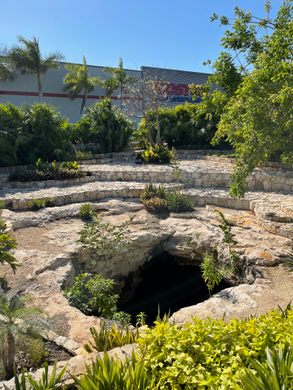




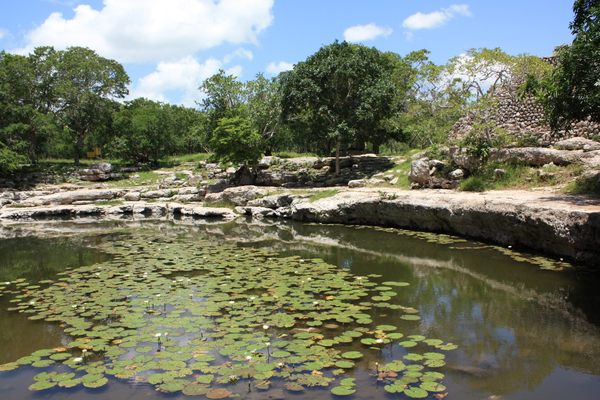
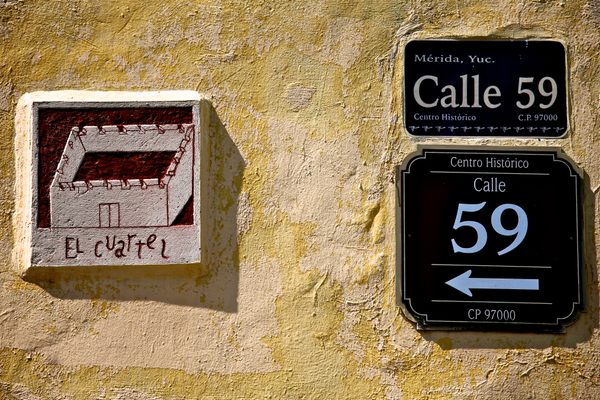
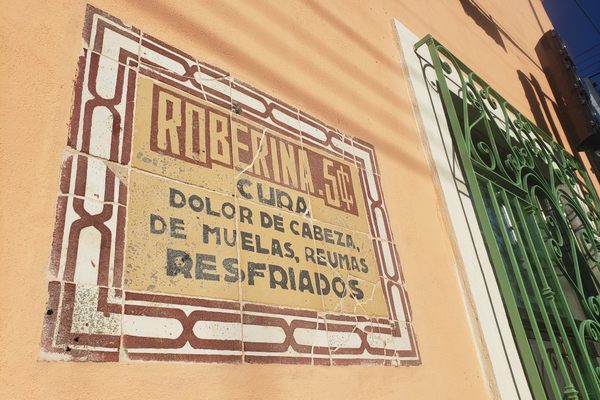

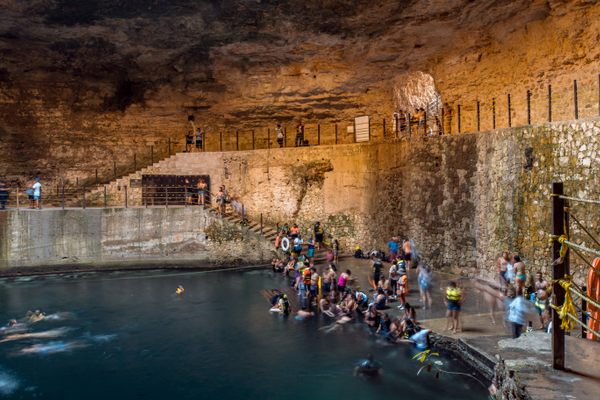



Follow us on Twitter to get the latest on the world's hidden wonders.
Like us on Facebook to get the latest on the world's hidden wonders.
Follow us on Twitter Like us on Facebook